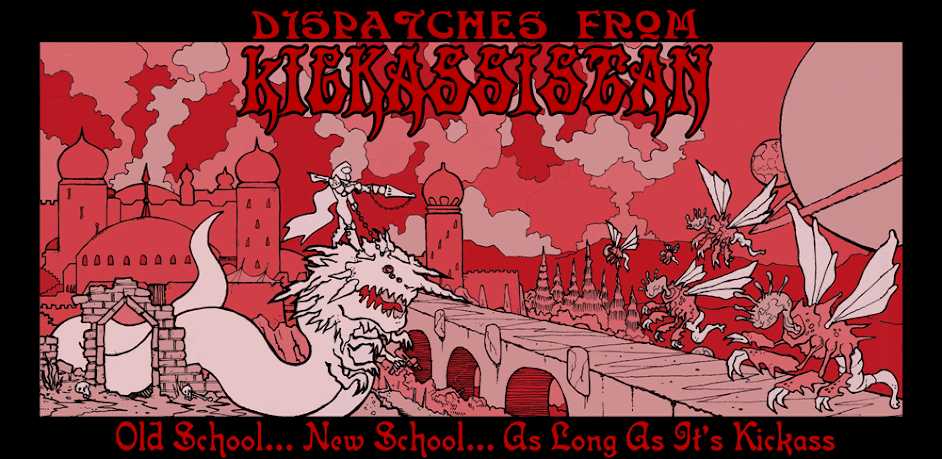 I make no secret of my love for the Apocalypse World engine. Sure, I have trouble with some of the "future hipster speak" to be found in AW, but the incredibly simple-yet-robust core mechanic just blow me out of the water. For the most part, this has played out in an infatuation with Dungeon World (!!!) and the very excellent "What If?" version of DW known as World of Dungeons, but I keep looking for new ways that I can use the super-simple AW mechanics to make the tabletop experience more interesting and blah blah blah, I dig it, you get it, we can move on.
I make no secret of my love for the Apocalypse World engine. Sure, I have trouble with some of the "future hipster speak" to be found in AW, but the incredibly simple-yet-robust core mechanic just blow me out of the water. For the most part, this has played out in an infatuation with Dungeon World (!!!) and the very excellent "What If?" version of DW known as World of Dungeons, but I keep looking for new ways that I can use the super-simple AW mechanics to make the tabletop experience more interesting and blah blah blah, I dig it, you get it, we can move on.As some folks out there may know, I'm gearing up to run Traveller for the first time. I was really impressed by how quickly folks who bothered to talk to me about the game (a) would ask what version of the game I was planning on running and (b) how much they respect folks for playing different versions of the game even if it's not their preferred version if you've got good reasons for wanting to run that version. Wow. Very different. Haven't these people ever heard of edition wars? Of course they have, they've just said "to hell with it" and don't even hack on folks for playing Traveller 5e. Wow. That's some serious "live and let game" there. (Yes G+ Traveller community, I'm talking about you; you're some classy folks and I applaud you.)
So, now it's time for me to get to the part that gets me burned at the stake. While I was pouring over MGT (that's Mongoose Traveller if you were wondering), I noticed that the potential bonuses and penalties really aren't that big. Skills add some, attributes add some, but we're relaly not talking about huge dice modifiers here (until we start factoring in DMs proper). For a reasonably competent character, a modifier of +2 is a pretty solid total dice modifier that in the RAW gives you a 72.22% chance of success. Sure, min maxers can stack the hell out of some mods, but MGT RAW really doesn't make stuff like that very likely. Further, the core mechanism is to roll 2d6, add your mods, and you succeed if you get an 8 or better (that's one better than the median score of the 2d6 probability distribution, meaning you have a less than 50% chance of success without mods), which hovers nicely around the point of strong central tendency.
Now, the AW engine also uses a 2d6 dice roll, also has relatively low dice mods, also has a fixed (and easy to understand) success rubric and also gravitates some degree of success toward the central tendency rather than away from it. Why the hell shouldn't I use the AW success mechanism in Traveller?
Here's how it would break down:
Roll a 6 or less, and you fail.
Roll a 7 - 9 and you succeed, but there's a catch.
Roll a 10 or better and there's no catch.
Example catches:
- Deplete ammo
- Expose yourself to enemy attack
- Give up information that you meant to keep secret
- Give an enemy an advantage
- Give an ally a disadvantage
- The psionic power costs additional Psionic Strength to use
- And so on
Perhaps different skills would have different sets of catches or other interesting choices to make, I'm not that far in the process. This scheme moves success in Traveller away from a binary, "success or failure" mechanism and toward a system where there are degrees of success and consequences for narrow successes. What do you think, folks? Is this worth pursuing further?
